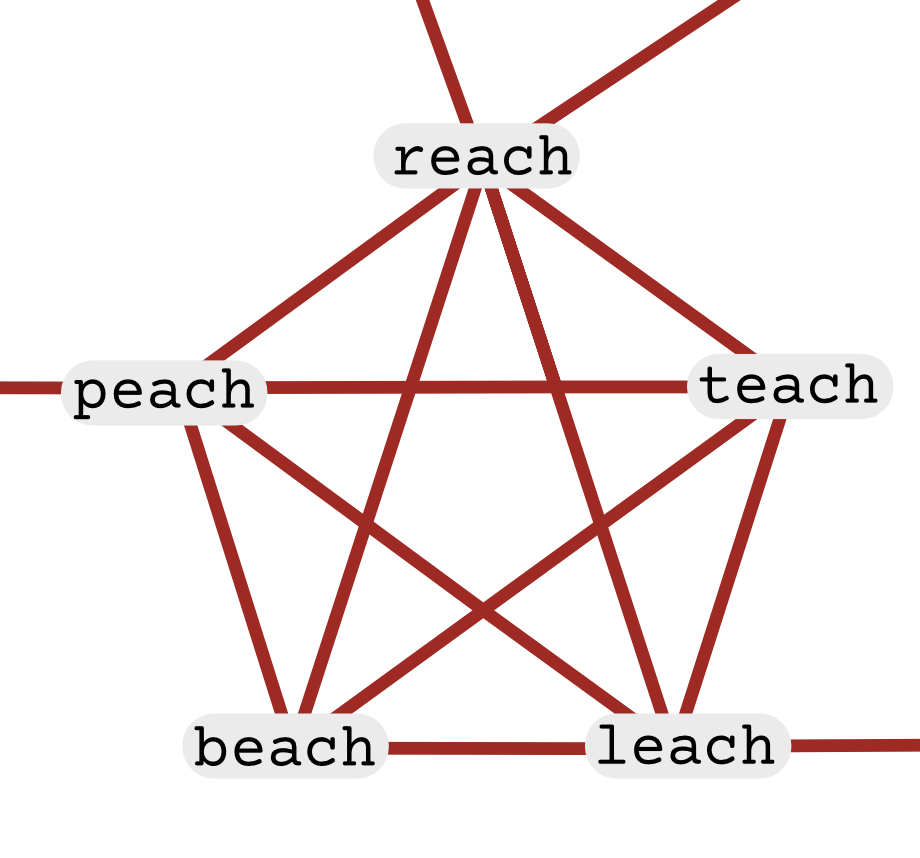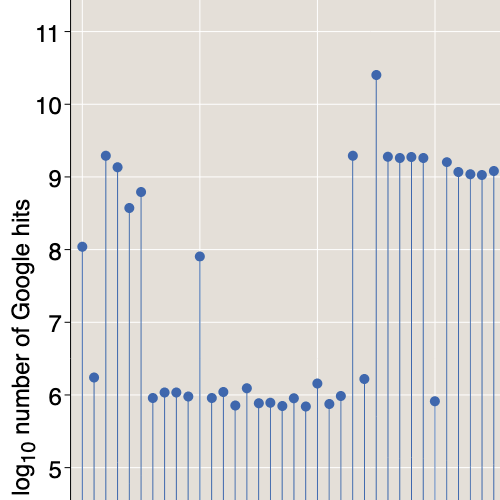Erreurs de Mathématiciens
by Brian Hayes
Published 29 November 2006
At the library the other day I requested an old book from off-site storage. When I called for it at the circulation desk, I felt as I would when buying some lurid tabloid at the drugstore checkout counter. The book was Erreurs de Mathématiciens des origenes á nos jours, a tell-all tattle-tale account that promised to reveal shamefaced failures of judgment and lapses of logic from throughout the long history of mathematics. When I got the book home, though, it was a sad disappointment. I was expecting to read about errors with grave consquences—false proofs and misconceptions that sent mathematics down the wrong path for decades or centuries. Instead I learned that Leonhard Euler incorrectly indentified 1,000,009 as a prime, and J. J. Sylvester once got some signs wrong in a paper. What a scandal! There are a few famous goofs among the listings (Pierre de Fermat’s conjecture that 2^2^n + 1 is always prime), but other equally celebrated mistakes go unreported (for example, the flawed proofs of the four-color theorem by Alfred Kempe and Peter Guthrie Tait). Some of the listings are simply mystifying. St. Augustine is cited for his assertion that the creation of the world took six days because six is a perfect number; I can’t see a problem with Augustine’s arithmetic here (6 is equal to 1 + 2 + 3 and 1 × 2 × 3, isn’t it?), so I suppose the flaw must lie in the theology, which is beyond my competence.
Erreurs de Mathématiciens was compiled by Maurice Lecat, who had it privately printed in 1935. Lecat was a Belgian chemist, mathematician and know-it-all; it seems that nothing was beyond his competence. In another of his books I found a long and diverse list of works du même autour. Within mathematics he wrote on determinants and the calculus of variations; in chemistry his specialty was azeotropic distillation (which sounds interesting, though I know zip about it); he also ventured into cosmology and the theory of relativity and published a monograph on intelligence among social insects. It appears he wrote at least seven books about his countryman Maurice Maeterlinck. Maybe some of these works are of lasting value.
But when it comes to errors of mathematicians, surely we can do better than Lecat’s nitpicking. Anyone have a favorite mathematical faux pas?
Responses from readers:
Please note: The bit-player website is no longer equipped to accept and publish comments from readers, but the author is still eager to hear from you. Send comments, criticism, compliments, or corrections to brian@bit-player.org.
Publication history
First publication: 29 November 2006
Converted to Eleventy framework: 22 April 2025




The most egregious wrong turn that comes to mind are egyptian fractions: apparently, in ancient Egypt fractions were written as a list of integers whose reciprocals add to the desired quantity, with a premium on doing so without repeating any. For example, 3/7 could be written as (7,7,7), but even better is (4,6,84).
It’s still an active area of “recreational” math, but if the problem was to make fractions work, it was an awful solution. As far as I know, it’s possible the Egyptians just used it as recreation, too, though.
Here’s one of many unsolved problems concerning egyptian fractions: Is the equation 4/n=1/x+1/y+1/z solvable in positive integers for all n>1?